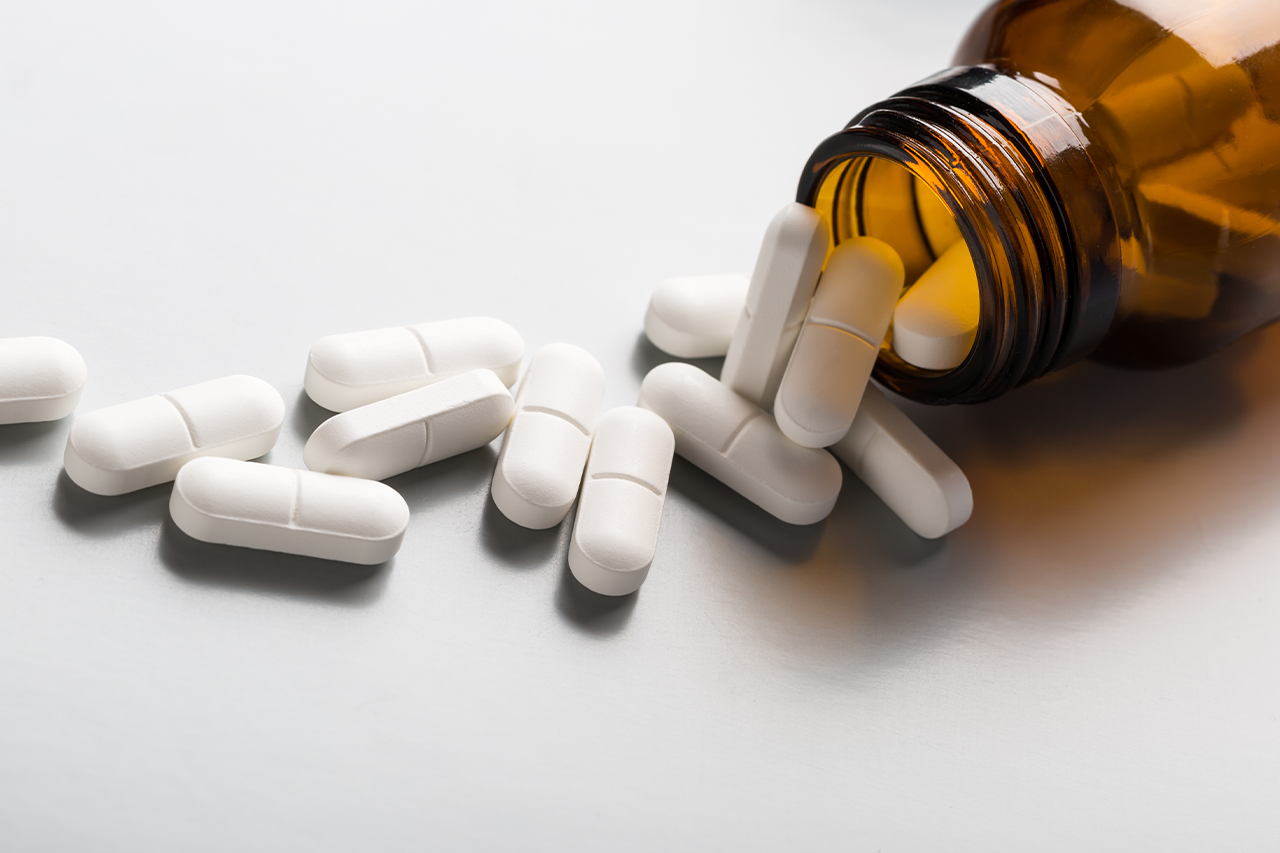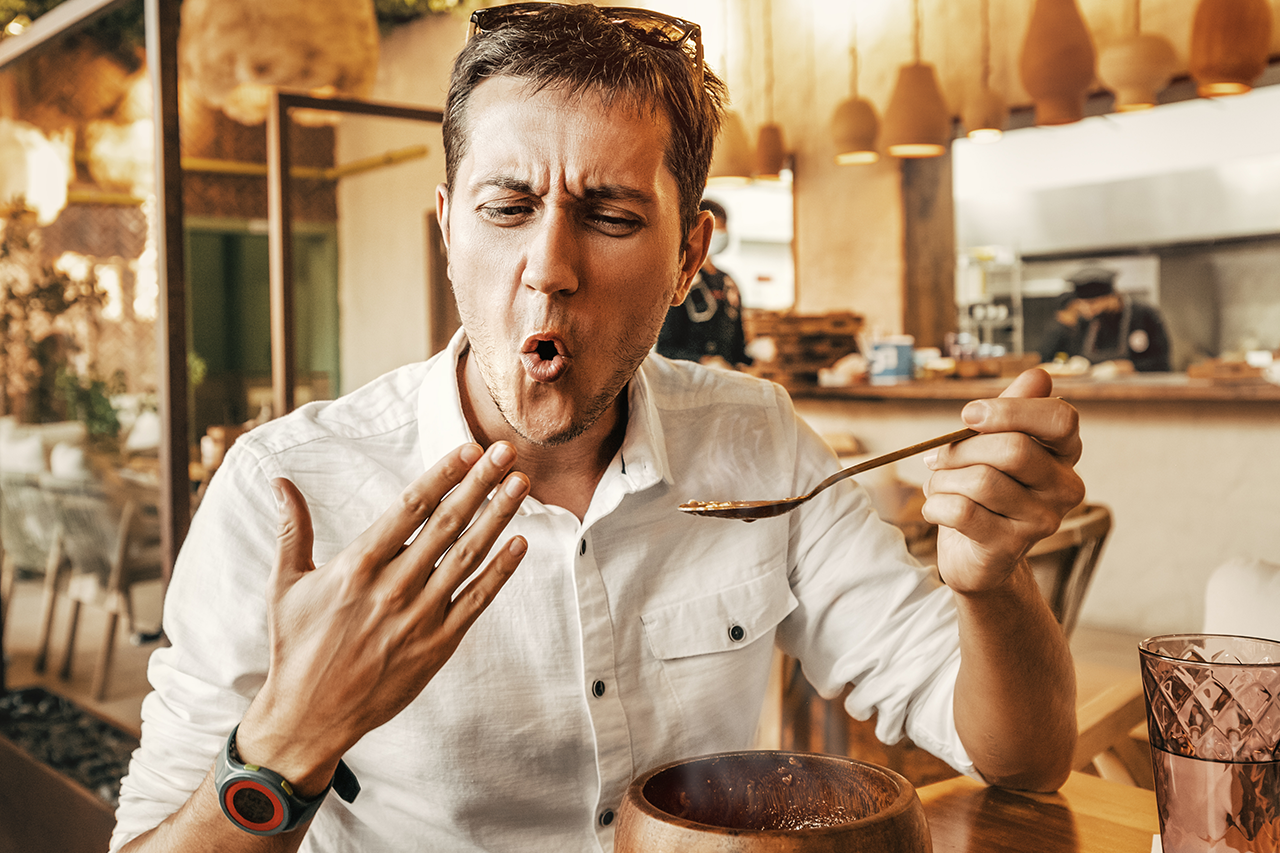
What the Bible Says About Alcohol Abuse
May 31, 2022
How Long Does Klonopin Stay In Your System?
June 16, 2022
What the Bible Says About Alcohol Abuse
May 31, 2022
How Long Does Klonopin Stay In Your System?
June 16, 2022
Spicy Food High: Is It Possible?
If you’ve ever had a funny feeling after eating spicy food, you’re not alone. Capsaicin, the compound that makes hot peppers hot, can stimulate the brain, causing it to release certain chemicals. The release of these chemicals has been compared to a high, but could that be? Today, we’re looking into whether a spicy food high is possible and if it’s similar to that of a drug high.
Can Spicy Food Make You High?
Oddly enough, yes, spicy food can make you high, but it’s not the same as using drugs or drinking alcohol. The spiciness in spicy foods is not a taste but rather a sensation caused by capsaicinoids. Simply put, these compounds send signals to your brain, making it believe that it’s in pain.
In response, your brain releases endorphins and dopamine to block pain signaling and reduce distress. One type of chemical “message” released by capsaicin or capsaicinoids is substance P, which transmits pain signals in the body.
The brain responds by releasing another type of neurotransmitter known as endorphins. Endorphins are the body’s natural response to pain by blocking the nerve’s ability to transmit pain signals throughout the body.
Additionally, the neurotransmitter dopamine is released when we’re in pain. This chemical is known for its role in pleasure, reward, and heightened mood.
All this to say that for some people, eating spicy food can make them feel high. A spicy food high is characterized by a sense of euphoria and is compared to a “runner’s high.”
Spicy Food High: A Safer Alternative to Drugs?
Considering that you can get high from spicy food in large amounts, it’s no surprise that many people in addiction recovery are hooked on spicy food. Insert the various health benefits of eating spicy foods, but they can also produce a natural high that may reduce a person’s cravings for and thoughts about drug use.
In addition to a natural high, spicy food is also a fan favorite among many recovering addicts because of the thrill of doing something risky (like eating the world’s spiciest pepper.) It’s also because craving specific foods is another common aspect of recovery for many. For instance, many people who are recovering from a crack cocaine addiction experience strong cravings for sugar.
When it comes to spicy foods, people in addiction recovery can push the limits and spark their adrenaline by trying the world’s spiciest peppers or other foods. The “thrill” of pushing these limits along with the ethereal effects of a spicy food high can help people in recovery stay on track and keep their minds off drugs or alcohol.
Furthermore, a major part of recovery is adapting your lifestyle to your newly found sobriety. This may include adding nutritious foods to your diet.
When most addicts come off of drugs, they experience child-like cravings for junk food like candy, grilled cheese, cereal, and ice cream. Adding hot sauce or cayenne pepper as a replacement for these foods on top of healthy foods like veggies or protein could help satisfy these cravings and improve their mood naturally.
Some spicy foods, like cayenne pepper, can also help increase appetite, which is vital in recovery. Many addicts fail to eat nutrients and take care of their bodies during active addiction and therefore need to replenish their bodies with healthy foods in recovery.
So, eating spicy food can be a natural way to get high and avoid relapse. However, if anyone is struggling with addiction, nothing is a replacement for professional treatment.
Negative Effects of Eating Spicy Food
Finding healthy replacements for certain habits is common among people who underwent drug or alcohol addiction treatment, but too much of anything can be a bad thing, a concept that definitely applies to spicy food. While there are plenty of health benefits of eating spicy foods, there are also a lot of cons to keep in mind.
Common negative side effects of spicy food include:
- Upset stomach
- Diarrhea
- Nausea
- Vomiting
- Abdominal pain
- Acne
- Eczema
- Flushed skin
- Insomnia or trouble sleeping
- Acid reflux
- Heartburn
- Irritation to the throat
- Blisters and rashes on the skin
So, while a spicy food endorphin high can ease drug cravings and provide a sense of thrill, having too much of it can do some serious damage to your stomach lining and other areas of the body. Portion yourself accordingly, and don’t eat more than you can handle.
Struggling With Drug Use?
As we previously mentioned, while spicy food can be healthy and beneficial for those in addiction recovery, it is not a replacement for professional residential addiction treatment in cases of severe substance abuse. If you or someone you know is struggling with drug or alcohol use, get help from professionals.
The addiction specialists at our Christian addiction recovery center utilize evidence-based methods like medically monitored detox and individual therapy to help clients safely withdraw from drugs and alcohol and cope with the mental aftermath of drug use. Addiction is a multifaceted disease that affects everyone differently, which is why we prioritize our patients’ individual needs as we help them in their recovery.
If you’d like to learn more about our Christian drug rehabilitation programs for yourself or a loved one, call Faith in Recovery today at 888-280-4763.
Related Reading:
Christian Books to Read During Recovery
Meet Faith in Recovery’s Certified Pet Therapy Dog, Luke!

